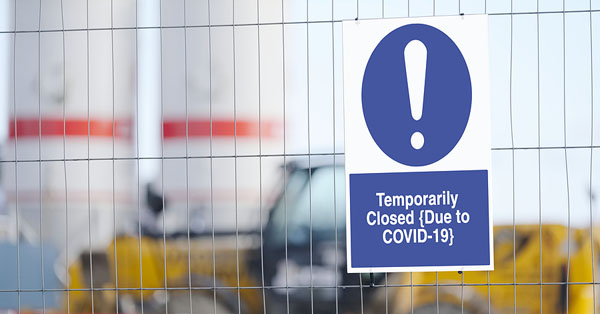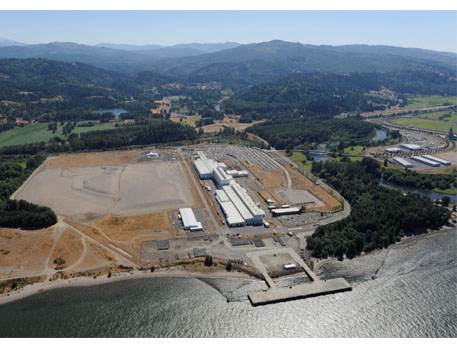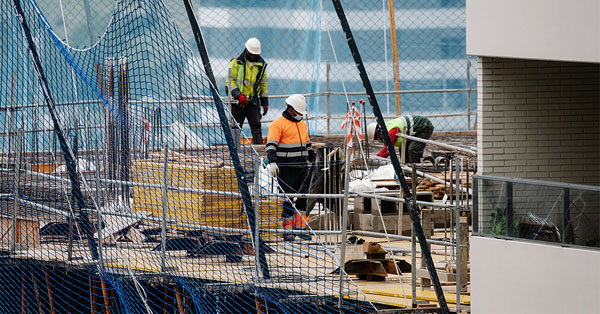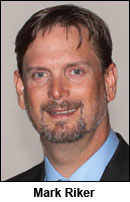OPINION
Our time: A building trades perspective
Building trades stand ready to build an inclusive economic recovery — with career opportunities for all.
By MARK RIKER
(July 21, 2020) — In this unprecedented time in our history, we must look to address the various challenges we face in a manner that provides a path toward keeping our nation’s promise. But before we can, we need to do our laundry.
Acknowledging that we have work to do isn’t a negative thing; it doesn’t mean that we dislike or disrespect who we are or where we’ve been. It is simply being honest with ourselves and doing something about the dirty laundry in our lives, and in our history. Now, I have no intention of disrespecting those who have came before me and led us to this point. I do not live or lead in their time. I live in my time, I serve in our time.
Currently there are too many challenges to name, but I look to address two very big challenges in this column: Economic Recovery from the Pandemic, and Racial Inequality.
Economic Recovery from the Pandemic
At the onset of corrective measures necessary to avoid a health care catastrophe in the State of Washington, we in the construction industry did our very best to play our part in the solution. First, we accepted the fact that we must suffer along with everyone else by not working, by removing ourselves from the public sphere in order to flatten the curve and play a supportive role to the health care industry.

Approximately 50 percent of the construction labor force was designated as non-essential due to the nature of the projects we were working on. Therefore, were temporarily laid off and relied on unemployment insurance in order to make ends meet. Now, while various governmental entities offered this safety net, there isn’t a construction worker alive who goes into this industry to put their tools down and stand aside. We build incredible things for the productivity, pleasure, and comfort of society. Our industry takes great pride in that fact. We certainly do not get into this work for an unemployment check.
So, we took a back seat and stayed home, while supporting those in our industry who had been designated essential to provide the important functions our industry brings to our society.
Now we have done our part and it’s time to look at recovery, real recovery.
In construction, every dollar invested generates between $2.70 and $3.50 of economic activity as a result of that initial investment. Stated another way, $1 billion becomes between $2.7 billion and $3.5 billion in economic activity. That’s money that supports restaurants and the people who feed us, schools and educators who teach our kids, and the youth sports leagues that keep them active. This money is injected into local community economies where the investment is made.
Additionally in Washington state, while the construction industry makes up approximately 4 percent of the state’s Gross Domestic Product, it accounts for approximately 22 percent of the state’s sales tax revenue. That is providing more than five times its value in benefit to the public. That’s a multiplier that can spur real economic recovery.
At a time when we must look for the most efficient ways to restore economic prosperity, we cannot overlook private entities that are ready and willing to add to this investment.
 For example, the proposed NW Innovation Works methanol manufacturing facility in Kalama, Wash., is a proposal for a completely privately funded project worth more than $2.2 billion that would reduce global greenhouse gases while manufacturing materials to be used in products that the entire world needs every day. That is $0.00 of public investment that will yield upwards of $5.94 billion to $7.7 billion of economic activity, and much of it right here in Southwest Washington. These communities were already in desperate need of economic activity even before the pandemic crippled the national economy.
For example, the proposed NW Innovation Works methanol manufacturing facility in Kalama, Wash., is a proposal for a completely privately funded project worth more than $2.2 billion that would reduce global greenhouse gases while manufacturing materials to be used in products that the entire world needs every day. That is $0.00 of public investment that will yield upwards of $5.94 billion to $7.7 billion of economic activity, and much of it right here in Southwest Washington. These communities were already in desperate need of economic activity even before the pandemic crippled the national economy.
Now, I have the privilege of working with environmental advocacy groups and I enjoy that important work. But some of these groups are opposing the Kalama project. In doing so, factions within their movement are doing a disservice to the citizens of the region, state and world by not accepting their victory in creating the cleanest methanol manufacturing plant in the world. It is time for them to claim that victory and assist in this region’s much-needed economic and environmental recovery.
Another example is the Green Apple biodiesel refinery project, another approximately $1 billion project that was proposed for development and construction in the northwest corner of our state. Again, private investment was there to spur economic recovery in a region desperate for it, while also benefiting the global effort to reduce emissions. Green Apple was scuttled because the developers lacked confidence in their ability to get this project permitted.
In this time of necessity for economic recovery, we need to bring that project and many others back to life. For our planet, for our economy, and for our citizens, we must bring these projects back.
While these are private investments, they are not all that is needed. We desperately need to fund transportation infrastructure, education infrastructure, health care infrastructure, and others. I only highlight the private investment because they cost the public nothing while providing great benefit. We also need to make public investments to spur recovery as well. It will take an all-hands-on-deck approach to achieve real recovery.
Now for the dirty laundry. And ours stinks.
Racial Inequality
There is no doubt that the Building Trades Unions have historically been considered an exclusive country club of white males. It is honest history to state that our policies worked to exclude minority workers from our ranks to protect white males in the industry. The real effect of these policies has been to broaden racial inequality by not allowing access to the middle-class careers that we in the trades have fought so hard to secure. While we were busy protecting ourselves from the inclusion of minorities in our unions, the non-union sector of the industry was all too glad to welcome them, exploit them, and allow low-road contractors to take over vast sections of the nation’s construction industry.
And the division has widened right under our noses. While we thought we were protecting our futures, we were actually tumbling towards this moment of reckoning.

It is also honest recent history to state that over the past three decades Building Trades Unions have worked tirelessly — and successfully — to improve upon this record, becoming more inclusive and reflective of what our communities actually look like. We have not acted rapidly enough, and are certainly not finished with this work, but these efforts continue today.
Some of the measures locally that are being accomplished in this effort are priority hire and community workforce provisions within Project Labor Agreements in which the residents near projects are given career opportunities on those projects. Again, these have the effect of creating a workforce that actually reflects the people living in the communities where these projects are being built. The Building and Construction Trades Councils in Seattle, King County, and all across the State of Washington are leading the way in these efforts.
Now, there is a reason I wanted to tie these two topics together.
We can have no real meaningful recovery unless it is an inclusive recovery. One that provides opportunity for access to wages and benefits equally to the citizens of Washington state, regardless of gender, race, sexual orientation, or any of the other identifiers that are used to separate and divide us from the only thing that really matters, we are all just imperfect red-blooded humans.
Simply put, we are all morally equal, and deserve the same opportunities to raise our families and thrive in our communities. It’s about time we realize that and treat each other like it.
 Mark Riker is Executive Secretary of the Washington State Building & Construction Trades Council and a member of Sheet Metal Workers Local 66. He is also a Vice President of the Washington State Labor Council, AFL-CIO.
Mark Riker is Executive Secretary of the Washington State Building & Construction Trades Council and a member of Sheet Metal Workers Local 66. He is also a Vice President of the Washington State Labor Council, AFL-CIO.





